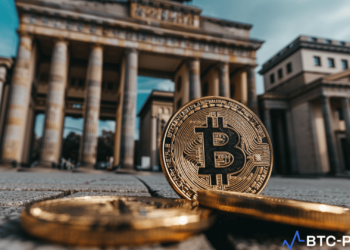Since the inception of digital currencies, bitcoin has emerged as a powerful financial asset that has captured the attention of investors worldwide. Its decentralized nature and scarcity have given it an allure that few other assets can match, and as a result, more and more people are buying and holding digital currency. According to a recent release by Glassnode, over 44 million addresses currently own Bitcoin, which is a testament to its growing popularity.
₿𝗥𝗘𝗔𝗞𝗜𝗡𝗚
44,000,000+ addresses holding #bitcoin pic.twitter.com/775lTVQzwm— Documenting ₿itcoin 📄 (@DocumentingBTC) February 15, 2023
What’s more, the number of Bitcoin addresses is growing at a rapid pace. Glassnode’s data shows that the number of addresses holding Bitcoin has increased by around 13% over the past year alone. This indicates that more and more people are buying and holding bitcoin, either for investment purposes or as a store of value.
The reasons for the growing popularity of Bitcoin are manifold. For one, Bitcoin offers a level of financial privacy that is hard to come by in the traditional banking system. Transactions on the Bitcoin network are done anonymously, which means that users can transact without revealing their real identities. This is a powerful feature for those who value their privacy, especially in the current era where data breaches, identity theft, and hacks are all too common.
Another reason people are buying Bitcoin is its scarcity. Unlike fiat currencies that can be printed at will by central banks, Bitcoin has a fixed supply of 21 million units. This means that once all the bitcoins have been mined, there will be no more new coins created. This scarcity has led many to view Bitcoin as a digital form of gold and, as such, a good store of value.
The increasing adoption of Bitcoin by institutional investors is also driving its popularity. In recent years, large corporations such as MicroStrategy, Square, and Tesla have added bitcoin to their balance sheets. This has provided a level of legitimacy to cryptocurrency that was previously lacking. Moreover, it has led to a domino effect, with more and more companies considering Bitcoin as a viable investment.
The rise of Bitcoin ownership is not just limited to the United States or other developed countries. Glassnode’s data shows that Bitcoin ownership is growing in emerging markets as well. For example, Nigeria, which has a population of over 200 million people, has become one of the largest markets for Bitcoin in Africa. This is due in part to the country’s strict capital controls, which make it difficult for citizens to access foreign currency. Bitcoin provides an alternative means of storing value and making cross-border transactions.










